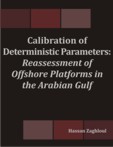Add abstract
Want to add your dissertation abstract to this database? It only takes a minute!
Search abstract
Search for abstracts by subject, author or institution
Want to add your dissertation abstract to this database? It only takes a minute!
Search for abstracts by subject, author or institution
by Lauren Nicole Corrigan
| Institution: | The Ohio State University |
|---|---|
| Department: | Civil Engineering |
| Degree: | |
| Year: | 2012 |
| Keywords: | Civil Engineering; Environmental Engineering |
| Posted: | |
| Record ID: | 1973449 |
| Full text PDF: | http://rave.ohiolink.edu/etdc/view?acc_num=osu1343063222 |
Recent studies have observed arsenic release from spent adsorbent media under landfill conditions; however, the specific mechanisms causing the release remain unclear due to the numerous and complex chemical and biological processes that occur in landfills. Studies have found that bacteria can directly influence arsenic speciation, which may be a factor in arsenic release from spent adsorbent media in landfills. The purpose of this research is to investigate the role of the dissimilatory arsenic reducing bacteria (Bacillus benzoevorans strain HT-1) on arsenic release from iron oxide adsorptive media under anaerobic landfill conditions. HT-1 was cultured in synthetic leachate media with arsenate added as the sole electron acceptor. The bacteria were then transferred into large serum bottles containing the synthetic leachate and arsenic-loaded goethite media. Arsenic release was monitored under seven amended media conditions with abiotic controls: (1) lactate as the electron donor, (2) citrate as the electron donor, (3) acetate as the electron donor, (4) elevated silicate concentrations, (5) elevated sulfate concentrations, (6) elevated bicarbonate concentrations, and (7) elevated phosphate concentrations. With the exception of the acetate treatment, arsenic release was observed under each scenario in concentrations exceeding arsenic release observed under abiotic conditions. Citrate had a greater influence on arsenic release than lactate, likely due to the ability of citrate to sorb to the media and compete with arsenic for sorption sites. Therefore, the heterogeneity of organic acids in landfill leachate will likely influence arsenic release from adsorbent media differently. Concentrations of anions in landfill leachate vary between different landfills and are likely to influence arsenic release from spend adsorbent media. Elevated concentrations of bicarbonate and phosphate significantly influenced arsenic release. The increased concentration of either bicarbonate or phosphate resulted in a greater extent of arsenic reduction and release. Therefore, landfills with higher concentrations of bicarbonate and phosphate will likely see a greater extent of arsenic released from arsenic-bearing solid residuals. This research shows that the biological arsenic reduction process can enhance arsenic release from spend adsorbent media under anaerobic landfill conditions and as a result, the spent media may be a significant source of arsenic in landfill leachate. Further research is required to ascertain the predominant mechanism causing arsenic release from spent adsorbent media in landfills; however, the role of arsenate-reducing bacteria should not be overlooked.
Want to add your dissertation abstract to this database? It only takes a minute!
Search for abstracts by subject, author or institution


|
Predicting the Admission Decision of a Participant...
|

|
Development of New Models Using Machine Learning M...
|

|
The Adaptation Process of a Resettled Community to...
A Study of the Nubian Experience in Egypt
|

|
Development of an Artificial Intelligence System f...
|

|
Theoretical and Experimental Analysis of Dissipati...
|

|
Optical Fiber Sensors for Residential Environments
|

|
Calibration of Deterministic Parameters
Reassessment of Offshore Platforms in the Arabian ...
|

|
How Passion Relates to Performance
A Study of Consultant Civil Engineers
|